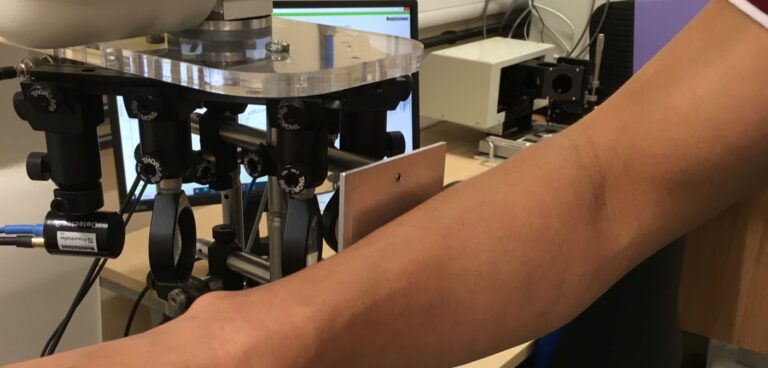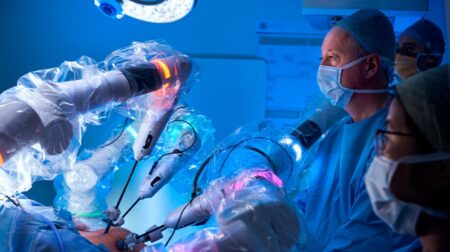A project, led by the University of Warwick, is working to develop a new technology that will integrate probes that can detect cancer tumours through the skin with high-precision robotic surgery.
As part of the £8m programme, University Hospitals of Coventry and Warwickshire, University of Leeds and University of Exeter, scientists aim to investigate potential of terahertz radiation (T-rays) to diagnose skin and colorectal cancers and improve accuracy of cancer surgery using robots.
The Terabotics project is expected to begin in September and is working towards trials of the technology with patients attending cancer services at University Hospitals Coventry and Warwickshire and Leeds Teaching Hospitals NHS Trust.
If successful, the researchers hope it could lead to real-time diagnosis for cancer patients, shorter waiting periods for cancer surgery, and more comprehensive removal of tumours with reduced need for follow-up surgery.
Investigator professor Emma Pickwell-MacPherson, from the University of Warwick department of physics, said: “What we will be testing is our hypothesis that we are able to detect a buried or hidden tumour. We think our terahertz probe will be able to detect those through looking at the transient response of the skin.
“Somebody might already be diagnosed with cancer, but the actual extent of that cancer may not be known. For example, in skin cancer patients, the THz probe will image the visible tumour and the surrounding area to better determine the extent of the tumour that is beneath the surface. This will enable the whole tumour to be removed in one go, rather than incrementally. In turn, this enables better planning for reconstruction and speeds up the procedure.”
During the five-year project, the researchers will focus on adapting the T-ray probes to work with the surgical robots, miniaturisation of the technology and refining the design to provide more diagnostic parameters.
Later stages of the project will involve trialling the technology with patients with a known or suspected cancer. Those attending cancer services at University Hospitals Coventry and Warwickshire will be offered the opportunity to participate alongside their routine care.
Colorectal cancer patients will be seen at the University of Leeds, where an endoscopic probe is being developed specifically to examine the colon.








